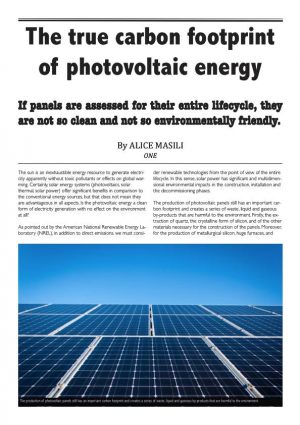Until the new regulations are adopted solar panels that exhibit characteristics of hazardous waste must be managed as hazardous wastes and not as universal wastes.
Are new residential solar panels hazardous waste.
It produces vast quantities of hazardous waste which are not being adequately dealt with.
The lifespan of solar panels may thus be much longer than officially stated.
From a regulatory aspect pv panel waste still falls under the general waste classification.
When these panels enter landfills valuable resources go to waste.
Solar photovoltaic panels whose operating life is 20 to 30 years lose productivity over time.
Thousands of ageing rooftop solar panels represent a toxic time bomb and major economic waste unless australia acts swiftly to keep them out of landfill conservationists and recyclers say.
Disposal of solar panels.
Solar panels contain lead cadmium and other toxic chemicals that cannot be removed.
Solar panels are composed of photovoltaic pv cells that convert sunlight to electricity.
At forbes michael shellenberger highlights another problem with solar energy.
He further noted that while solar panels contain hazardous substances aussies are sending hundreds of thousands of e waste items to landfills and creating significant pollution problems.
Solar energy is terrible for the environment in a number of ways including the fact that large land areas must be devoted to it.
The epa describes universal waste as subject to a streamlined set of standards compared to other types of hazardous waste.
The international renewable energy agency estimated that there were about 250 000 metric tons of solar panel waste in the world at the end of 2016 and that the figure could reach 78 million metric tons by 2050.
Dtsc has a web page dedicated to information on the development of pv module regulations.
A 2018 report from the institute of energy research suggests imposing a recycling fee on solar panel purchases.
With recycling expensive.
The new classification affects how long solar panel waste can be held on site before it is required to be transferred to another facility and reduces requirements for testing for certain hazardous materials.
A federal disposal and decommissioning fund would then dispense funds to state and local governments to help pay for removal and recycling or long term storage of solar panel waste.









